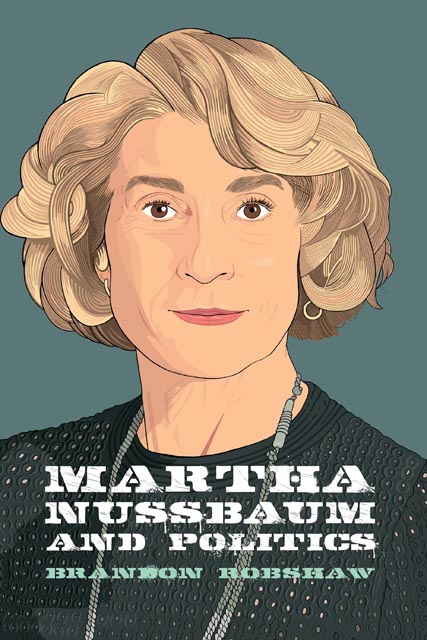Book contents
- Frontmatter
- Contents
- Introduction: A Public Intellectual
- Chapter 1 Nussbaum and the Ancient Greeks: Tragedy, the Luck-Proofing of Life, and Practical Rationality
- Chapter 2 Nussbaum and Education: Socratic Scrutiny, World Citizenship and the Narrative Imagination
- Chapter 3 Nussbaum and Feminism: Liberal Feminism, Adaptive Preferences and FGM
- Chapter 4 Nussbaum and Capabilities: Human Nature, Human Flourishing and the Ten Capabilities
- Chapter 5 Nussbaum and Animal Rights: Capabilities for Animals
- Chapter 6 Nussbaum and Religion: Liberty of Conscience, Accommodation and Burqa Bans
- Chapter 7 Nussbaum and the Emotions: Emotions as Cognitive Judgements – and a Normative Critique of Anger
- Chapter 8 Nussbaum and Global Justice: Cosmopolitanism, Material Aid and Immigration
- Conclusion: An Organic Whole
- Bibliography
- Index
Chapter 1 - Nussbaum and the Ancient Greeks: Tragedy, the Luck-Proofing of Life, and Practical Rationality
Published online by Cambridge University Press: 18 October 2023
- Frontmatter
- Contents
- Introduction: A Public Intellectual
- Chapter 1 Nussbaum and the Ancient Greeks: Tragedy, the Luck-Proofing of Life, and Practical Rationality
- Chapter 2 Nussbaum and Education: Socratic Scrutiny, World Citizenship and the Narrative Imagination
- Chapter 3 Nussbaum and Feminism: Liberal Feminism, Adaptive Preferences and FGM
- Chapter 4 Nussbaum and Capabilities: Human Nature, Human Flourishing and the Ten Capabilities
- Chapter 5 Nussbaum and Animal Rights: Capabilities for Animals
- Chapter 6 Nussbaum and Religion: Liberty of Conscience, Accommodation and Burqa Bans
- Chapter 7 Nussbaum and the Emotions: Emotions as Cognitive Judgements – and a Normative Critique of Anger
- Chapter 8 Nussbaum and Global Justice: Cosmopolitanism, Material Aid and Immigration
- Conclusion: An Organic Whole
- Bibliography
- Index
Summary
Martha Nussbaum's political philosophy is rooted in her moral philosophy, which is in turn rooted in the ethics of ancient Greek writers and thinkers. It is worth noting that Nussbaum's first orientation was towards classics, and in particular classical drama; she graduated with a BA in theatre and classics from New York University in 1969, before going on to specialise in philosophy at Harvard. Her first book, The Fragility of Goodness (first published in 1986) focuses on three major lines of ancient Greek ethical thought: the moral ideas embodied in Greek tragedy, particularly the work of Aeschylus and Sophocles; Plato's moral theory; and Aristotle's virtue ethics. These ideas are developed and related to moral and political theory in the modern world. Moreover, they form the roots of the future development of her work as it branches in different directions. The Fragility of Goodness announces several themes that will continue to be important throughout Nussbaum's work. One of these is an acceptance that there is such a thing as human nature. But human nature is wide, various, rich and complex. Nussbaum is not a perfectionist – that is, she does not hold that there is one best kind of life which is suitable for everyone. Nevertheless, she does hold that, since we are the kind of creatures that we are, there are certain goods to which it's essential we have access. At an individual level, these goods should inform how we relate to one another personally; at a political level, governments should provide or facilitate access to them. Another key theme is the centrality of personal relationships in any conception of a good life. For Nussbaum, relationships are one of the supreme goods of life, if not the supreme good, and this view informs all her later writings on morality and politics. A third feature to note is not so much a theme as an approach or method: the use of literature to illuminate philosophical theory. In The Fragility of Goodness Nussbaum draws on Greek tragedy not just for examples of moral dilemmas (although she does do that) but also because she finds philosophical ideas there, expressed in literary form.
- Type
- Chapter
- Information
- Martha Nussbaum and Politics , pp. 10 - 29Publisher: Edinburgh University PressPrint publication year: 2023



